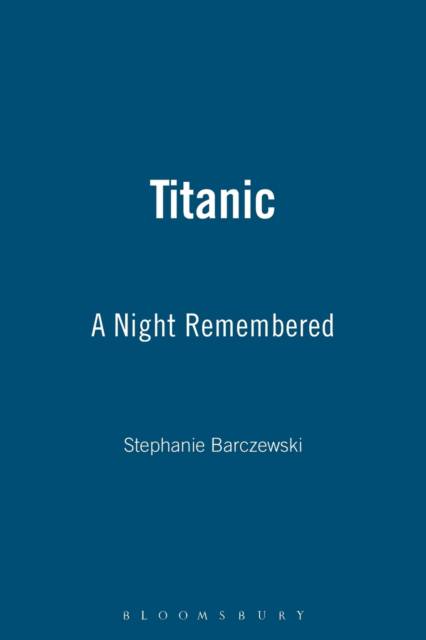
- Retrait gratuit dans votre magasin Club
- 7.000.000 titres dans notre catalogue
- Payer en toute sécurité
- Toujours un magasin près de chez vous
- Retrait gratuit dans votre magasin Club
- 7.000.0000 titres dans notre catalogue
- Payer en toute sécurité
- Toujours un magasin près de chez vous
Description
In a night of unforgettable tragedy, the Titanic, the world's largest liner on its maiden voyage, struck an iceberg in the North Atlantic at 11.40 p.m. on 14 April 1912 and sank at 2.20 a.m. the following morning. Over 1500 people died. Whose fault it was, and how the passengers and crew reacted, has been a subject of dispute ever since the first news of the disaster broke. Titanic: A Night Remembered, as well the story of the ship and its only voyage, is an account of ten of those who died: among them Titanic's captain Edward Smith and builder Thomas Andrews, John Jacob Astor, the richest man on board, and the bandmaster, Wallace Hartley, who played as the ship sank. Stephanie Barczewski traces their lives and careers and what brought all of them together on that fatal night. Many of those who died were treated as heroes (in contrast to men such as J. Bruce Ismay and Sir Cosmo Duff Gordon, who used their influence to get places in lifeboats). How these men and women were remembered in both Britain and America says much about contemporary values of manhood, heroism, chivalry and national pride. Titanic: A Night Remembered also sets the Titanic in the context of three ports: Belfast, where it was built; Southampton, which lost 600 citizens as members of its crew; and Queenstown in Ireland, its last port of call.
Spécifications
Parties prenantes
- Auteur(s) :
- Editeur:
Contenu
- Nombre de pages :
- 382
- Langue:
- Anglais
Caractéristiques
- EAN:
- 9781852855000
- Date de parution :
- 19-06-06
- Format:
- Livre broché
- Format numérique:
- Trade paperback (VS)
- Dimensions :
- 172 mm x 230 mm
- Poids :
- 653 g

Les avis
Nous publions uniquement les avis qui respectent les conditions requises. Consultez nos conditions pour les avis.






